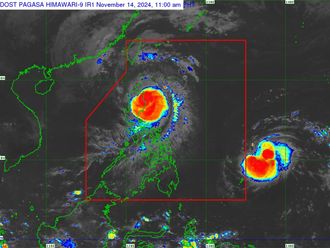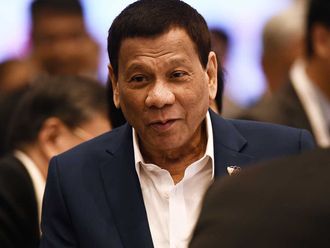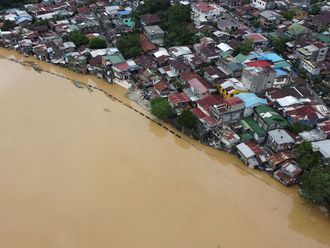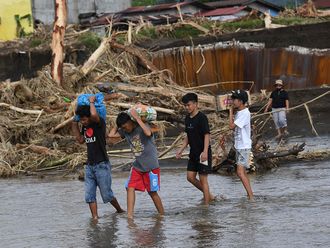Manila: As the impeachment trial of the country's highest judicial official start Monday, senator-judges fear that the overwhelming number of witnesses that the prosecution plans to present may delay normal workings of government.
House of Representatives member Niel Tupas, who serves as lead prosecutor said they are planning to present 100 witnesses in the impeachment trial, including the ones already called to the podium earlier such as internal revenue chief Kim Henares, Supreme Court clerk of court Enriquieta Vidal and two others. But Senator Miriam Defensor Santiago, a former trial court judge herself, said the overwhelming number of witnesses could delay the trial and cause unnecessary complications.
Worse, she said, the people might already lose interest in the impeachment case and compromise calendared discussions on the chamber on other important legislation.
"It might hamper the actual work of the Senate which is to pass necessary laws for the people," Santiago said.
The senator suggested that to enable the proceedings to be more productive, the prosecution carefully chose their witnesses. "The court may stop the introduction of further testimony upon any particular point when the evidence upon it is already so full that more witnesses to the same point cannot be reasonably expected to be additionally persuasive. But this power should be exercised with caution," she said.
House member Mitos Magsaysay from the political opposition said the typical complaint would hear no more than 20 witnesses. She warned that a long trial would degenerate into a "television novel" and in the end stray from the original motive which is to determine if Corona had indeed committed wronging.
Senate President Juan Ponce Enrile said the senators, who are sitting as impeachment jurors, is ready to hear as many witnesses as the prosecution would like to present as long as they stick by the rules.
Meanwhile, not everyone whom the prosecution wants summoned to the witness stand want to be heard. Certain witnesses, such as journalists, were surprised on receiving summons from the court. Some sense that their presence at the court could be used as a leverage.
Raissa Robles, who maintains a blog and writes for the South China Morning Post wrote to the House of Representatives and inquired why she is being called to be a witness.
"I am wondering why a press release from Congress says I am one of those to be subpoenaed to be asked in the impeachment trial of Supreme Court Chief Justice Renato Corona.
"According to the press release, I am being summoned to testify on Article 7, of which I have no personal knowledge," she said.
According to the House of Representatives, it wants Robles to testify on "the close personal relationship between Corona and GMA (Gloria Macapagal-Arroyo) and other allegations contained in the Verified Complaint, and other pleadings filed by complainants, and other matters relevant to the instant case."
The impeachment trial of Corona, which is the third for the country involving a high official, had become a sounding board of sorts for groups wanting to oust Corona and those who want him to remain to counterbalance the influence of President Benigno Aquino III.
The first official to be subjected to impeachment was then president Joseph Estrada in 2000 and lately, Ombudsman Merceditas Gutierrez.











